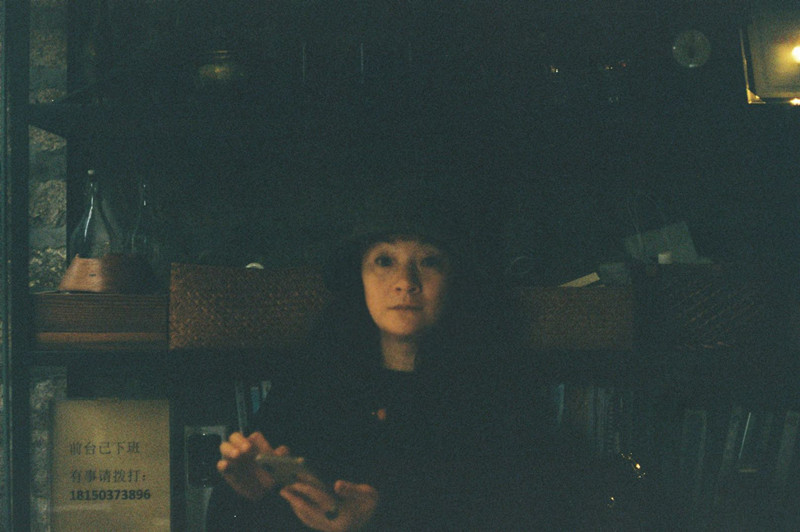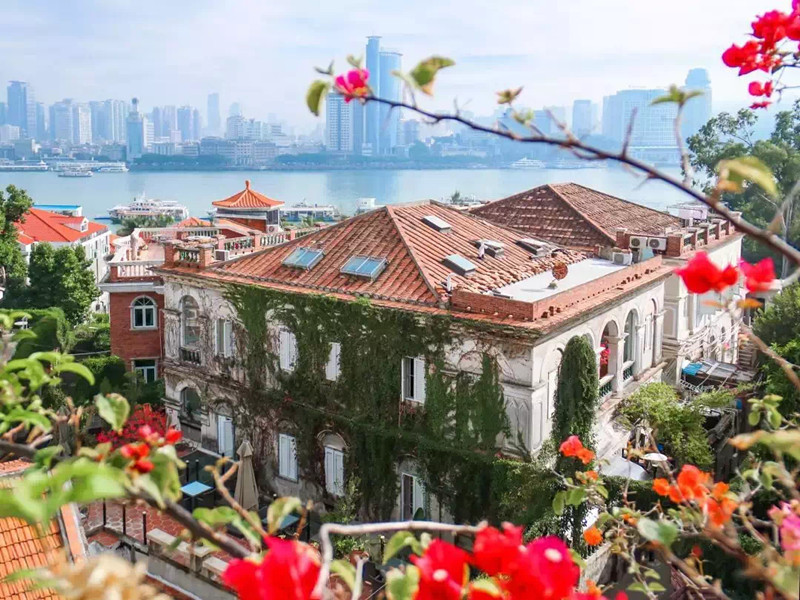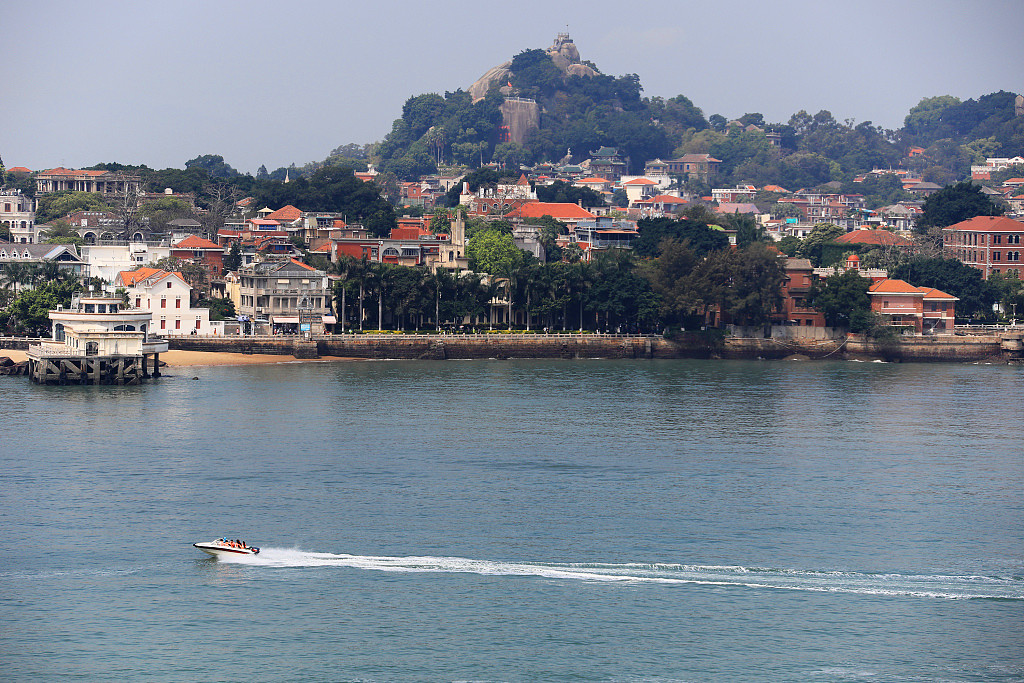Island hotelier struggles to survive amid COVID-19 epidemic
- By Zhang Rui
 0 Comment(s)
0 Comment(s) Print
Print E-mail China.org.cn, May 9, 2020
E-mail China.org.cn, May 9, 2020

A hotelier told China.org.cn about how she struggles through the COVID-19 epidemic while living on Xiamen's world-famous Gulangyu Island. She later joined an alliance to offer benefits to medical workers.
Gulangyu, an island off the coast of Xiamen, Fujian province in southern China, is home to about 20,000 people and is a top domestic tourist destination.
Since the outbreak of the epidemic, tens of thousands of tourists left the island, and only a few residents stayed. From Jan. 27 to March 16, the island was in lockdown.
Zhang Xiaojuan, who owns two guesthouses, has more leisure time now. She hears birds chirping, sees flowers blooming, and feels the breeze blowing. She also talks to her husband, a French artist who is trapped in France due to the pandemic, every day.
"The situation in France is not optimistic. Masks and disinfectants are difficult to find. My husband mostly stays at home and goes out to buy daily necessities once every two weeks. At least, he finds time to focus on his painting," she smiled.

Life looked peaceful and harmonious, but her heart was full of anxiety. "It was a surreal and haunting experience. I was worried about money, from hotel rents to staff salaries. The employees were also anxious," she told China.org.cn.
Xiamen city started to feel the heat on Jan. 22, and she began to panic. The next day, she saw a huge influx of requests to cancel bookings. She canceled them all.
"It was a devastating blow to the tourism industry. The impacts were huge," she said, "All hotels closed on Jan. 27, and hotel operators still have to pay rent to property owners during the epidemic."
According to her knowledge, some property owners exempted rent for one or two months; others reduced the rent by half. However, most owners didn't want to cut rent.
"On the island, possibly only ten property owners agreed to cut rent," Zhang said, adding that the local government issued some support policies and lobbied private property owners to exempt rent as much as possible.
She noted that compared with big hotel corporations, small and medium-sized hotels and guesthouses are more vulnerable.
"It will be tough for the hotel industry to recover by the end of 2020, and rent can be the most powerful straw to break hoteliers," Zhang said.
During the epidemic, Zhang did her best to send some medical supplies, such as masks and disinfectants, to poor areas. She was particularly touched by the sacrifice of frontline medical workers, who "traded their lives for our safety, health, and peace." As a result, she initiated the iGulang Tourism Alliance with five other hoteliers, Wu Jin, He Gu, Pan Yuewen, Xu Tong, and Zhu Sanhei, to give back to medical workers while struggling financially themselves.
"For several months, we had no income, but we have gratitude for the angels in white. We can always do something for them," she said. "So we thought, why don’t we provide an exemption on hotel rate for frontlines medical workers."
The alliance will provide 3,000 rooms in 36 hotels for medical workers, free of charge, as well as free food and drinks from 11 seafood restaurants and cafes, and 3,000 gift bags from Jun. 1 to Dec. 31, 2020. "We hope these medical workers can put down their pain, pressure, and burden, and return to normal life after the journey," she said.
Five hospitals in Hubei and Fujian provinces have already signed up for the program and will send medical workers to the island.
Gulangyu Island ended lockdown on March 16. Since April 8, hotels have started to resume work gradually, with an average occupancy rate of 30%. On May 1-3, the first three days of the national holiday, Zhang was happy to see her two hotels were full.

However, it will still take a long time to recover. Before the epidemic, about 20,000 to 30,000 tourists would visit the island every day; while now there are only about 10,000 tourists on the island even at its peak on May Day holiday.
"I never thought 2020 would begin like this, nor did anyone," she said, "but too much anxiety makes people more vulnerable. So, no matter how difficult it is, you need to face the situation positively and optimistically. When things get tough, we need to come together to get through."
The hotelier doesn’t know when she will see her French husband again, "I will not go to France unless the pandemic is effectively controlled, and I will also persuade him not to come back to China. We should reduce trouble, but we think about each other every day. And I pray for everyone," she sighed.





